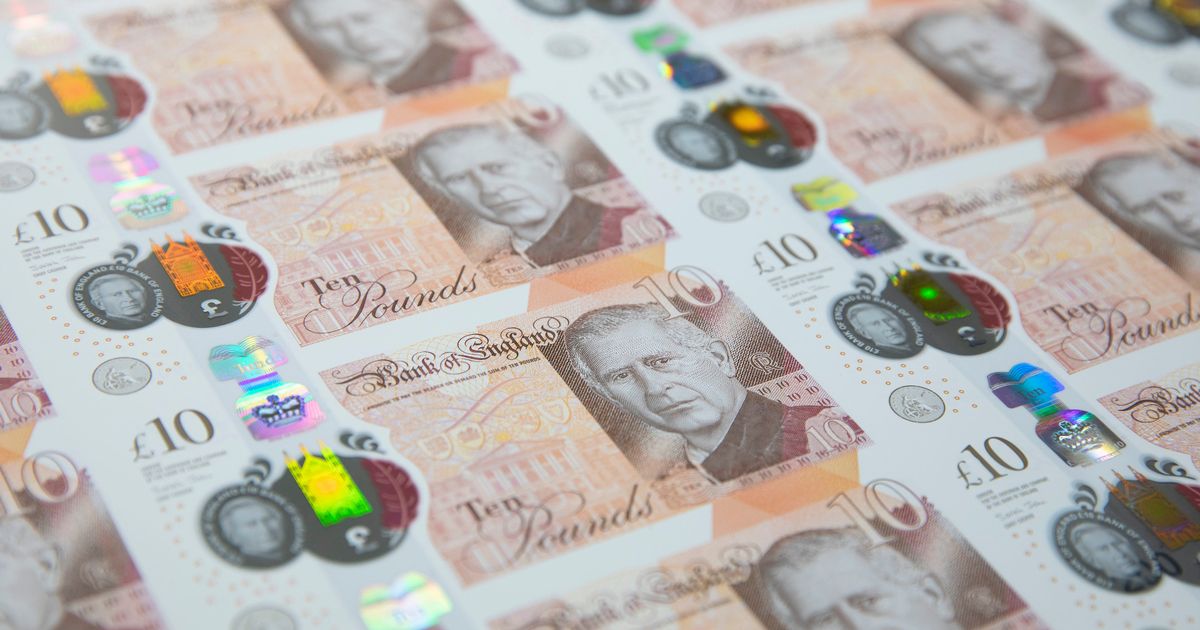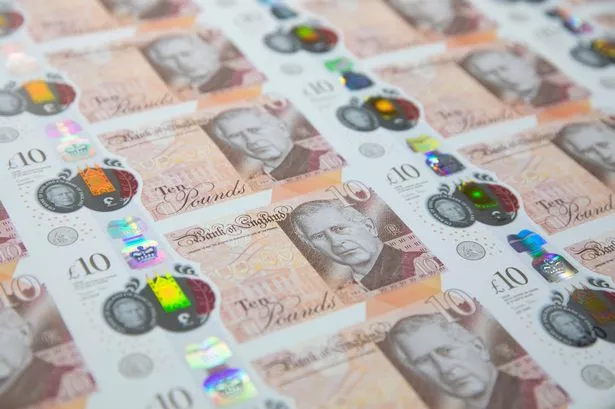It’s been just over a year since the Bank of England first issued King Charles III bank notes. That means they’re becoming increasingly common in people’s wallets.
But an unintended side effect is the rise in potential forgeries. As people aren’t as familiar with the new note, the potential for counterfeit notes to pass through is even higher than normal.
In 2023, the Bank of England and Raisin UK reported that approximately 116,000 fake banknotes, amounting to a face value of £2.5 million, were taken out of circulation. Despite the sophisticated security measures on the new polymer notes, which are intended to make it easier to identify counterfeits, the public is advised to exercise vigilance.
Kevin Mountford, savings specialist and co-founder of Raisin UK, said: “For the foreseeable future, both Queen Elizabeth II and King Charles III banknotes will be circulating. Security features are present on all of these notes, allowing you to check notes to prevent forgeries.”
When speaking to YorkshireLive, he offered some methods to check if your note is legitimate. When tilting the note from side to side, people should observe a shift in the hologram image’s wording of the note’s denomination. For instance, on a £5 note, the word alternates between ‘Five’ and ‘Pounds’.
Another feature to scrutinise is the see-through window. The metallic image over this window should display specific colours – gold for the £5 and £10 notes, a blend of gold and blue for the £20 note, and gold and green for the £50 note.
In addition, the window should also exhibit a portrait that corresponds with the printed monarch. “Familiarise yourselves with the look and feel of the new notes,” he suggested.
“Forgeries are often much easier to spot now these banknotes have improved from previous paper ones – however, criminals may still attempt to exploit the changes.”
Although counterfeit banknotes are rare, they hold no value and you will not receive compensation if you come across one. If you suspect a banknote is counterfeit, please take it to your nearest police station, where it can be submitted to the National Crime Agency for further investigation.
“Most retailers regularly check banknotes, so it’s unlikely you will come across a counterfeit when shopping with trusted retailers,” Kevin added. “You should exercise more caution when accepting cash from markets, online marketplaces like Facebook, and any cash-in-hand jobs.”

 The new notes have been popping up in people’s wallets more and more(Image: PA)
The new notes have been popping up in people’s wallets more and more(Image: PA)